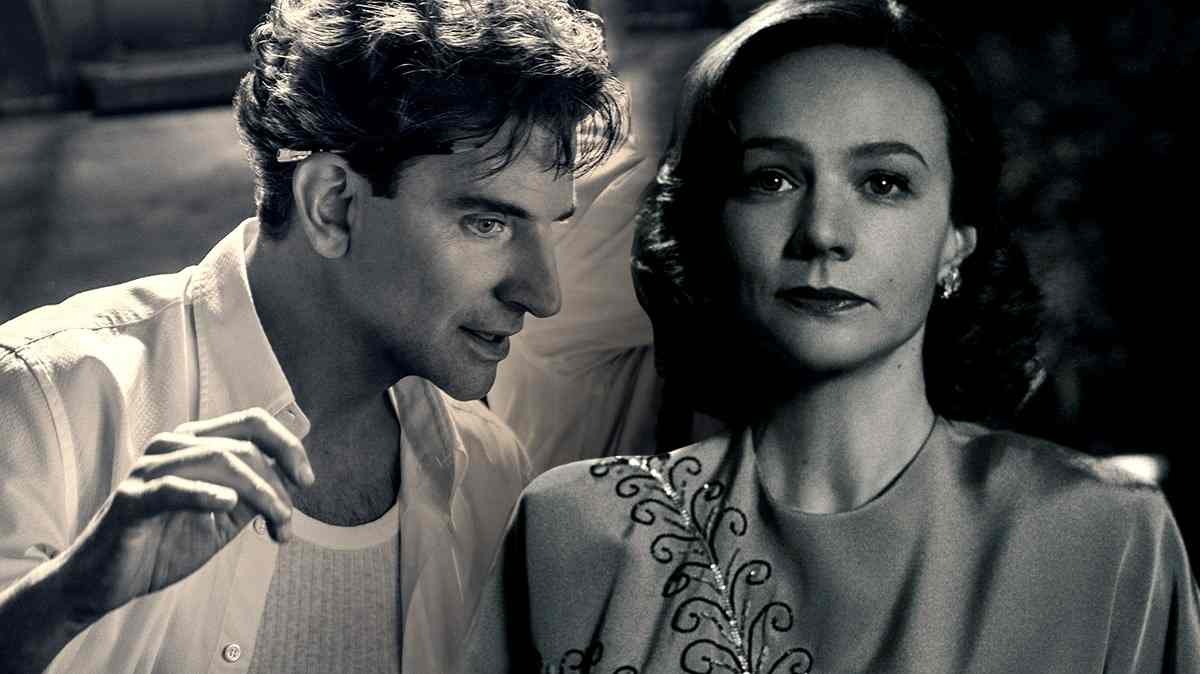The ending of Maestro changes focus to the emotional unraveling of Leonard Bernstein after his wife, Felicia Montealegre, returns to witness him conduct an orchestra in a magnificent church. They had been apart for a while, and Leonard is visibly moved when he sees her after the performance.
However, their brief moment of joy is short-lived as Felicia is immediately informed of a severe health diagnosis—a large tumor in her breast, potentially spreading to her lungs. The doctor quickly proposes a treatment plan that involves surgery and a biopsy to check for any cancer spread.

As time passes, Felicia’s condition worsens, and it’s revealed that she has lung cancer. Despite her best efforts to live as normally as possible, she soon becomes bedridden, unable to have visitors. Leonard, now fully dedicated to supporting her, cancels his upcoming performances and focuses entirely on caring for Felicia.
Sadly, cancer takes Felicia’s life, leaving Leonard completely heartbroken in one of the film’s most emotionally heavy moments. The movie briefly touches on Leonard’s life after Felicia’s passing, where he finds solace in mentoring young musicians.
Despite the immense sorrow, Leonard continues to receive admiration for his genius, eventually becoming a household name in America. The film ends with Leonard reflecting on his life and his approach to music during a televised interview, revealing his unique perspective and inspiration behind his work.
Felicia Montealegre Died In 1978 Of Lung Cancer
In Maestro, Felicia Montealegre’s death from lung cancer is a pivotal moment. The film portrays Leonard’s unwavering dedication to her, especially as her health deteriorates.
Even after everything they had been through, Leonard’s love for Felicia remains evident, especially when he postpones his performances to care for her. Despite their past difficulties, Felicia accepts his care during her final days, which reflects the tragedy of the time they lost while separated.
Beneath her acceptance, there’s a silent sorrow for the years that slipped by without the connection they could have had.
Leonard Continued His Passion For Music After Felicia’s Death
Leonard Bernstein, in real life, was reportedly deeply affected by Felicia’s passing, remaining in seclusion for months. Although Maestro doesn’t provide a precise timeline, the film hints that Leonard eventually found a way to move on, resuming his career and continuing to teach young conductors and musicians.
One of the film’s concluding scenes shows Leonard passing on his knowledge to the next generation, illustrating that despite the deep personal loss, his love for music and people never wavered.
Leonard Bernstein Openly Dated Men After Felicia’s Death
The final moments of Maestro’s changes, though subtle, highlight Leonard’s liberated life post-Felicia. Though Leonard never publicly acknowledged his sexuality, Felicia had long suspected that her husband might be gay or bisexual.
Her passing gave Leonard the freedom to express himself in ways he had never before. In one scene, an older Leonard is seen dancing intimately with a younger conductor whom he had been teaching earlier in the film.
Though Leonard never publicly acknowledged his sexuality, Felicia had long suspected that her husband might be gay or bisexual. Her passing gave Leonard the freedom to express himself in ways he had never before.
Leonard’s “Summer Does Still Sing In Me” Message Explained
The film’s final scene includes Leonard reflecting on his life and his relationship with Felicia. He quotes a line she once shared with him from a poem by Edna St. Vincent Millay: “If summer doesn’t sing in you, then nothing sings in you, and if nothing sings in you, then you can’t make music.”

Leonard recalls this advice during a difficult time in his life, and it serves as a reminder of Felicia’s lasting impact on him. The line resonates with him throughout his life, and in the closing moments of the film, Leonard affirms, “Summer does still sing in me.”
This signifies his ability to embrace life, create beautiful music, and honor Felicia’s memory.
The Real Meaning of Maestro’s Ending
The closing shot of Maestro is a poignant image of Felicia Montealegre, standing with her back turned to the camera, symbolizing the emotional distance that grew between her and Leonard over the years.
The blue light that envelops her enhances the sadness of their relationship, and as the title appears over her image, it underscores her long-standing decision to tolerate Leonard’s flaws.
By the end of her life, Felicia could no longer hide the pain and disillusionment caused by Leonard’s betrayals, reflecting the ultimate tragedy of their relationship. Felicia had always known the truth about Leonard—his hidden insecurities, anger, and his insatiable desire for attention.
The film captures this truth in a scene where Felicia jumps into a pool after Leonard announces the completion of a new composition, illustrating her emotional response to his endless pursuit of validation.
The final shot of Maestro leaves us with a chilling understanding of Leonard’s need for love and how it led to the heartbreak of those around him, especially Felicia.



